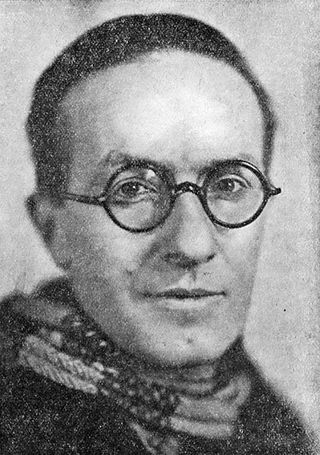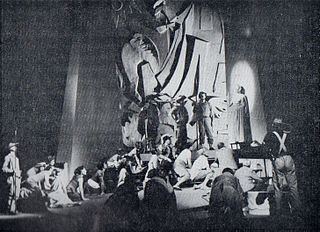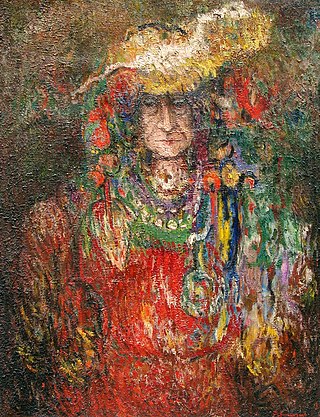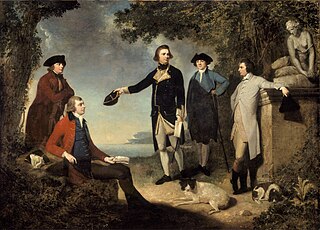
Hippolyte Jean Giraudoux was a French novelist, essayist, diplomat and playwright. He is considered among the most important French dramatists of the period between World War I and World War II.

The Book of Judith is a deuterocanonical book included in the Septuagint and the Catholic and Eastern Orthodox Christian Old Testament of the Bible but excluded from the Hebrew canon and assigned by Protestants to the apocrypha. It tells of a Jewish widow, Judith, who uses her beauty and charm to kill an Assyrian general who has besieged her city, Bethulia. With this act, she saves nearby Jerusalem from total destruction. The name Judith, meaning "praised" or "Jewess", is the feminine form of Judah.

The Trojan War Will Not Take Place is a play written in 1935 by French dramatist Jean Giraudoux. In 1955 it was translated into English by Christopher Fry with the title Tiger at the Gates. The play has two acts and follows the convention of the classical unities.

Judith is an opera in five acts, composed by Alexander Serov during 1861–1863. Derived from renditions of the story of Judith from the Old Testament Apocrypha, the Russian libretto, though credited to the composer, has a complicated history. The premiere took place in 1863 in Saint Petersburg. This stage debut, supplemented with his next opera Rogneda, made Serov the most important Russian opera composer of the 1860s.
The Apollo of Bellac is a comedic one-act play written in 1942 by French dramatist Jean Giraudoux.

The Madwoman of Chaillot is a play, a poetic satire, by French dramatist Jean Giraudoux, written in 1943 and first performed in 1945, after his death. The play is in two acts. The story concerns an eccentric woman who lives in Paris and her struggles against the straitlaced authority figures in her life.

Amphitryon 38 is a play written in 1929 by the French dramatist Jean Giraudoux, the number in the title being Giraudoux's whimsical approximation of how many times the story had been told on stage previously.
Song of Songs is an English adaptation of the play Cantique des Cantiques written in 1938 by the French dramatist Jean Giraudoux.

Electra is a two-act play written in 1937 by French dramatist Jean Giraudoux. It was the first Giraudoux play to employ the staging of Louis Jouvet. Based on the classic myth of antiquity, Electra has a surprisingly tragic force, without losing the spirit and sparkling humor that made Jean Giraudoux one of the most important playwrights of the mid twentieth century.
L'Impromptu de Paris is a play written in 1937 by French dramatist Jean Giraudoux.
The Enchanted is a 1950 English adaptation by Maurice Valency of the play Intermezzo written in 1933 by French dramatist Jean Giraudoux.

Ondine is a play written in 1938 by French dramatist Jean Giraudoux, based on the 1811 novella Undine by the German Romantic Friedrich de la Motte Fouqué that tells the story of Hans and Ondine. Hans is a knight-errant who has been sent off on a quest by his betrothed. In the forest he meets and falls in love with Ondine, a water sprite who is attracted to the world of mortal man. The subsequent marriage of people from different worlds is, of course, folly.
Duel of Angels (1963) is an English-language adaptation by Christopher Fry of the play Pour Lucrèce (1944) by French dramatist Jean Giraudoux. The play is based on the story of Lucretia, the virtuous Roman housewife who was raped and, finding no support from her husband and his friends, is driven to suicide. This is the same legend that was used by Shakespeare in The Rape of Lucrece. Giraudoux gives the Roman legend a new locale, setting his drama in nineteenth-century Aix-en-Provence in southern France.
Siegfried is a play written in 1928 by French dramatist Jean Giraudoux, adapted from his own 1922 novel, Siegfried et le Limousin. The novel had launched Giraudoux's literary career, and the play based upon it established his reputation as a playwright. "It [Siegfried] marked the beginning of a productive, lifelong collaboration with actor-director Louis Jouvet, whom Giraudoux credits with transforming his literary plays into theater pieces."

Sodom and Gomorrah is a play by French dramatist Jean Giraudoux (1882–1944). Composed as a tragedy set in the biblical city of Sodom, the play was first published in 1943.

The Virtuous Island is a 1956 English adaptation by Maurice Valency of the play Supplément au voyage de Cook written in 1935 by French dramatist Jean Giraudoux.
Tessa is a play written in 1934 by French dramatist Jean Giraudoux. It is a translation and adaptation of a 1926 stage version by Margaret Kennedy and Basil Dean of the former's 1924 novel The Constant Nymph.
Maurice Valency was a playwright, author, critic, and popular professor of Comparative Literature at Columbia University, best known for his award-winning adaptations of plays by Jean Giraudoux and Friedrich Dürrenmatt. He wrote several original plays, but is best known for his adaptations of the plays of others. Valency's version of The Madwoman of Chaillot would become the basis of the Jerry Herman musical Dear World on Broadway.

Judith is an oratorio composed by Thomas Arne with words by the librettist, Isaac Bickerstaffe. It was first performed on 27 February 1761 at Drury Lane Theatre. It depicts the story of Judith, taken from the Book of Judith of the Old Testament. It was first published in 1761 and republished with edits in 1764. The piece is divided into three acts, with a total of 28 movements including nine choruses, two duets, an overture, and 16 arias.

Judith and Her Maidservant is one of four paintings by the Italian baroque artist Artemisia Gentileschi that depicts the biblical story of Judith and Holofernes. This particular work, executed in about 1623 to 1625, now hangs in the Detroit Institute of Arts. The narrative is taken from the deuterocanonical Book of Judith, in which Judith seduces and then murders the general Holofernes. This precise moment illustrates the maidservant Abra wrapping the severed head in a bag, moments after the murder, while Judith keeps watch. The other three paintings are now shown in the Museo di Capodimonte in Naples, the Palazzo Pitti in Florence, and the Musée de la Castre in Cannes.












